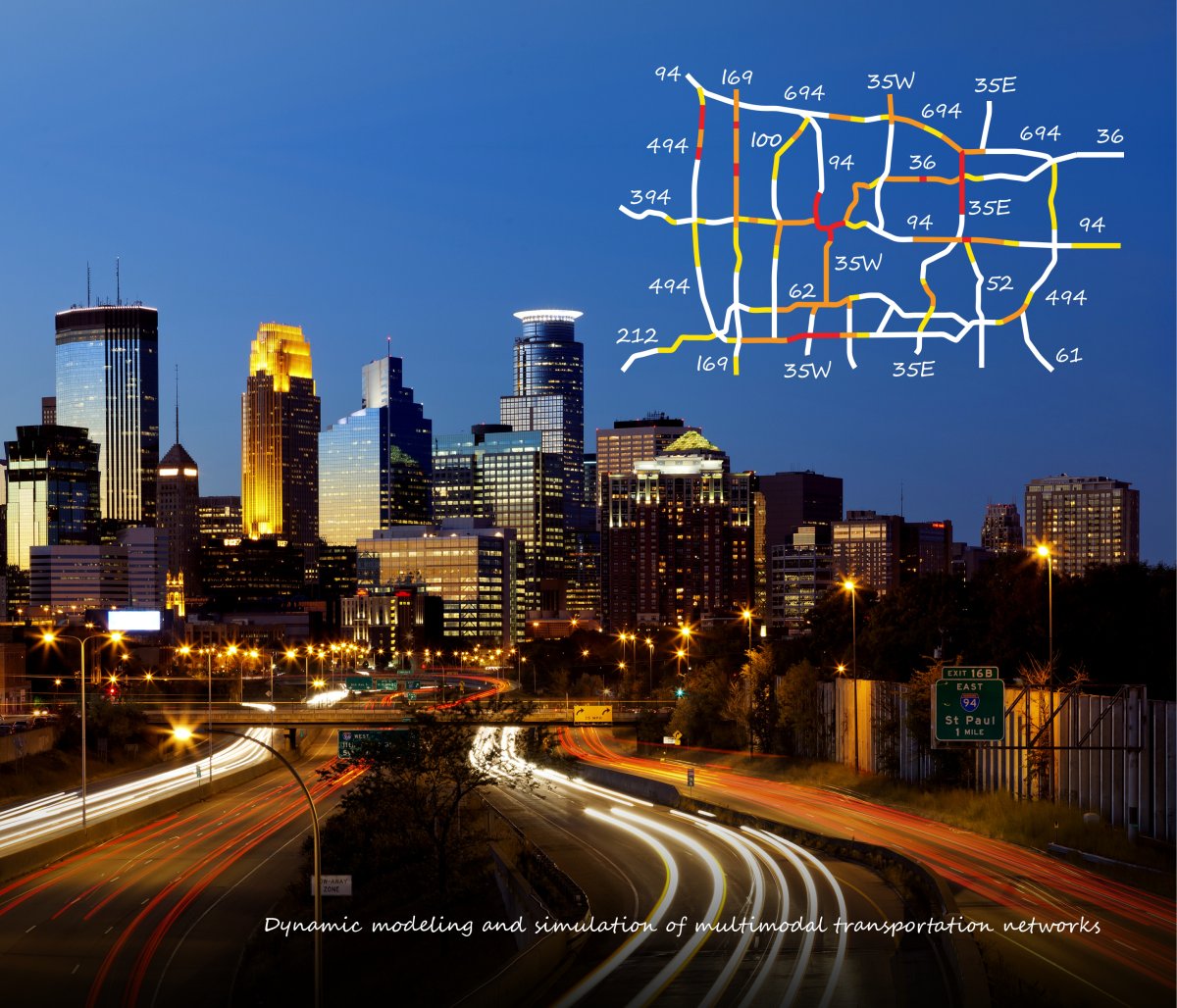Transportation Emphasis
Transportation engineering is a multi-modal field that includes highway, transit, aviation, maritime, rail, and pipeline systems.
It considers the user, the vehicle, and the infrastructure required to move people and goods safely and efficiently within and between cities. Advanced monitoring systems are used to collect transportation data and computer simulation models are used to analyze that data.
The graduate program in transportation engineering at the University of Minnesota is an interdisciplinary field that includes both transportation systems and pavement mechanics and materials:
- Transportation systems includes highway engineering, traffic engineering, pavement design, transit operations, transportation planning and policy, and systems analysis.
- Pavement mechanics and materials includes pavement design, management and rehabilitation and nondestructive and full-scale testing.
The program has six full-time faculty, two research faculty, and approximately 25 graduate students. There are many research opportunities available for graduate students through the University of Minnesota’s Center for Transportation Studies, the MnRoad Program, the Minnesota Traffic Observatory, the Accessibility Observatory, and the Roadway Safety Institute. The Minnesota Transportation Library contains a large collection of research materials that is available to students and researchers.
The department offers a dual-degree program with Industrial and Systems Engineering and a dual-degree program in urban and regional planning and civil engineering (MURP with MSCE) in conjunction with the Humphrey School of Public Affairs.
Transportation Systems Faculty
- Gary A. Davis
- Gerald W. Johnson (Emeritus)
- Alireza Khani
- Michael Levin
- Panos G. Michalopoulos (Emeritus)
- Karl A. Smith (Emeritus)
- Raphael Stern
- Jason Cao (Humphrey School of Public Affairs)
Pavement Mechanics and Materials Faculty
1 See also Geomechanics
Transportation Engineering Courses
If you do not have a undergraduate degree in engineering, you will need to take these additional courses: (These courses will not count towards your degree)
- CEGE 3101 Computer Applications or equivalent
- CEGE 3102 Uncertainty and Decision Analysis or Equivalent
- MATH 2263 Multivariable Calculus or equivalent
- MATH 2373 Linear Algebra or equivalent
Undergraduate Courses: (Will not count towards graduate degree)
- CEGE 3201 Transportation Engineering
Advanced Undergraduate Courses/Graduate Courses:
- CEGE 4253 Pavement Design, Engineering, and Management
- CEGE 5180 Transportation Cyber-Physical Systems
- CEGE 5211 Highway Design and Traffic Operations
- CEGE 5212 Transportation Policy, Planning, and Deployment
- CEGE 5213 Transit Planning and Management
- CEGE 5214 Infrastructure Systems Engineering
- CEGE 5219 Air Transportation Systems
Advanced Graduate Courses:
- CEGE 8200 Seminar: Transportation
- CEGE 8211 Theory of Traffic Flow
- CEGE 8212 Advanced Travel Demand Modeling and Supply Analysis
- CEGE 8213 Advanced Transportation Technologies Seminar
- CEGE 8214 Transportation Economics
- CEGE 8215 Transportation Data Analysis
- CEGE 8216 Urban Traffic Operations
- CEGE 8217 Transportation Network Analysis
- CEGE 8218 Dynamic Transportation Network Analysis
Graduate Courses in Related Fields:
- IE 5532 Stochastic Models
- STAT 5021 Statistical Analysis
- STAT 5302 Applied Linear Regression
*Recommended courses are in bold*
